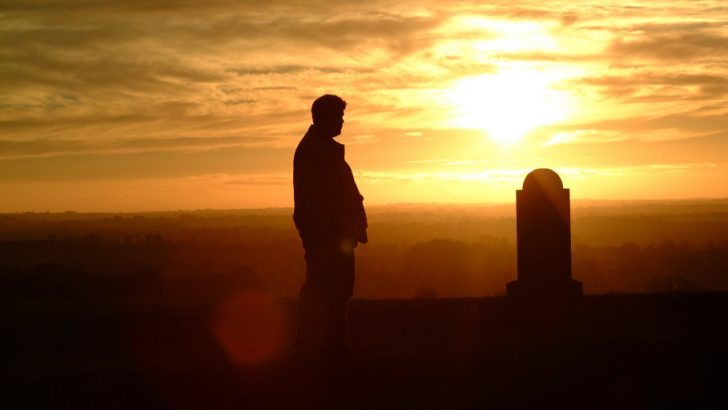Mags Gargan talks to a founding member of the Anam Cara parental and sibling bereavement support organisation
The loss of a child is every parent’s worst nightmare. The pain goes deep and the grief can be overwhelming. Family and friends are a wonderful source of support, but sometimes only someone who has been through the same loss and pain can really understand what a bereaved parent is going through. This is where the charity Anam Cara can offer help.
Anam Cara is a national organisation set up in 2008 by bereaved parents to help other grieving parents cope with their loss and try to move on in their journey of grief. It offers a variety of information and support through meetings, talks, family days and a comprehensive website that covers all aspects of the grieving process.
Sharon Vard, one of the founding members, says she was shocked that when her daughter Rachel died there wasn’t more support for bereaved parents. “We were attached to a hospital and for that reason we did get to one or two events which helped us along the way, but there was a huge shortage of support for parents before Anam Cara. There was nowhere to go to get information.”
Sharon was part of a group of grieving parents who met at a bereavement event and “realised the power of just meeting with others where you didn’t have to put a brave face on”. “We began meeting for tea and coffee. Then people started joining us and numbers started swelling. People were travelling from Laois, Mayo and Tipperary and we knew there was a need for something. We heard about another group in Cork that was meeting and we got in contact with them. They were interested in coming together with us, so we went for it. After the launch we went from two groups to nine groups operating around Ireland and we partner with other organisations to deliver bereavement information evenings.”
Service
Perhaps the most important service Anam Cara offers is information. Its website (www.anamcara.ie) was put together by bereaved parents and has links to various resources such as videos of parents talking about their journey through grief and how they survived.
They also offer a comprehensive information pack – which can be downloaded from the website – that offers seven booklets giving advice from the perspective of a mum, dad, adult siblings etc.
“We also have information evenings where we get an experienced professional to speak to a group of parents about the various challenges and the intense grief that follows the death of a child because it is quite overwhelming and devastating for any parent. Our guest speakers have a lot of experience of supporting parents and would be able to share different bits of information,” Sharon says.
“We have parent evenings for our nine groups which meet monthly from September to June each year. They give parents a comfortable place where they can chat to other parents. They are very informal and there is no agenda for the evening. You just come and talk about whatever is on your mind. What have you found challenging in the last month, maybe there was a first family event coming up like a First Holy Communion and parents might be really worried about it because they are newly bereaved. So parents who are a little bit further on will share how they have coped with those types of events.”
The group also organises events for the whole family which focus on remembrance. “We have 10 events throughout the year and they would include all family members including siblings and grandparents. They would be very gentle events, always with element of remembering like planting a tree or releasing balloons. It is about bringing all the family members together and for young children to realise they are not the only one who lost a brother or sister, so it is very reassuring for them.”
Adult child
When we talk about the death of a child, people often think that is a young child, but Anam Cara also supports people who are grieving the loss of an adult child and Sharon says that this pain is just as intense.
“I had a mum this week ring me who was aged 88 and her daughter who died was 59. Her mum was heartbroken and her daughter was just gone a year. She was finding it hard to sleep and was crying all the time and I said to her that is absolutely normal. It has only been a year. So parents will come at different stages,” she says.
“We have found that sometimes parents come in quite soon after a sudden death because they have no other support. When your child dies suddenly outside of a hospital or hospice system you tend to fall between stools in terms of support. So they tend to come in quite soon after the death just to get information and a bit of reassurance that they are doing ok because they may feel that they are falling apart. “A common thread in the early days is to think you are losing your mind. They need to be reassured that this is normal. Then parents come at different stages – they may be a longer time on the journey and they have got stuck on anger or blaming themselves or someone else or in guilt. What Anam Cara can do is to help parents to unpick what is blocking them from moving on, because grief is a long journey.”
Sharon says the strength of Anam Cara lies in that shared experience, “knowing that you are among group of mums and dads who know what you are going through”. “Family members can put a brave face on to the outside world and people think aren’t they marvellous how they are managing, but on the inside they are so fragile. But we hold it together, in particular for other family members. So here is a space where you can say I am feeling rotten and I don’t know how to get up in the morning. Other parents say we felt that too at this stage, just take it one day at a time and do what you are able for,” she says.
“They might say I can’t go to my friends’ wedding and they are beating themselves up emotionally and we would say don’t be so hard on yourself, it’s absolutely natural. I just went to the church ceremony and didn’t go to the reception. So we would share what we did in similar situations. It’s bringing them into a space where they can speak the unspeakable and there is understanding and compassion, and encouragement that this too will pass. If you understand your grief it loses its power over you – it doesn’t take over your life.”
*For more information or support contact Anam Cara on info@anamcara.ie or 01 4045378 or 085 2888 888.
Bereaved parents in their own words:
- “Talking to other bereaved parents helped us cope. To be able to talk to someone who knows how you are feeling and who understands all the different thoughts and emotions going on in your head is such a comfort. To be able to talk to others who were traveling the same path as ourselves gave us the hope that we may survive this!”
- “After our child died we got involved in fundraising, there are so many worthwhile charities but due to the nature of our child’s illness there was one or two very special organisations that need ongoing funds. So we have promised each year to do at least one fundraising event in our child’s name.”
- “It is four years since our son died, in the beginning it was so tough and only for extended family and friends, I am not sure how we would have managed. As time has passed we have found ways to cope with Christmas. It is still a tough time, however we have managed to find new traditions and a way to make sure our lad is remembered.”


 Mags Gargan
Mags Gargan
